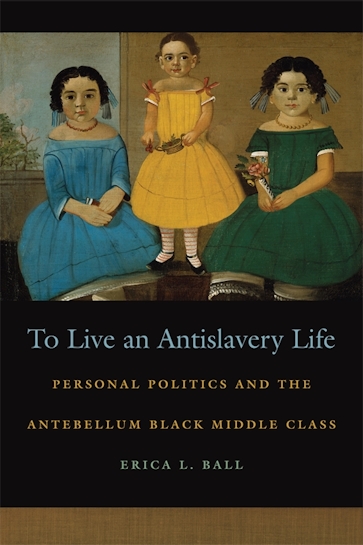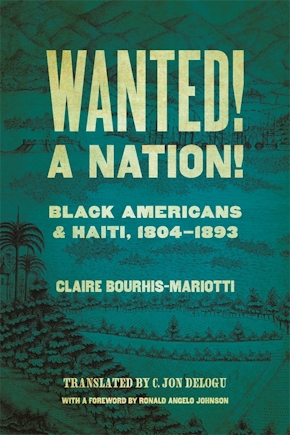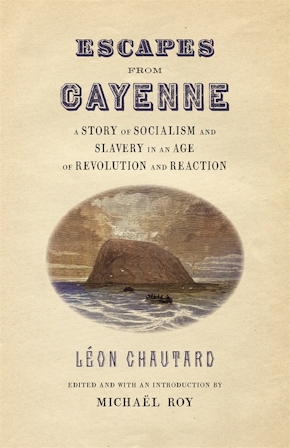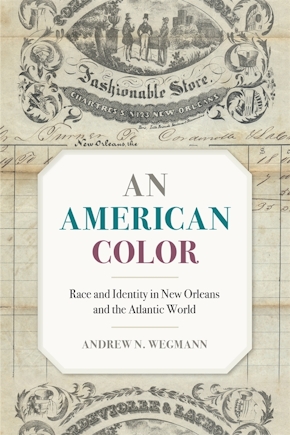To Live an Antislavery Life
Personal Politics and the Antebellum Black Middle Class
Title Details
Pages: 200
Illustrations: 5 b&w photos
Trim size: 6.000in x 9.000in
Formats
Paperback
Pub Date: 11/01/2012
ISBN: 9-780-8203-4350-1
List Price: $27.95
Hardcover
Pub Date: 11/01/2012
ISBN: 9-780-8203-2976-5
List Price: $120.95
eBook
Pub Date: 11/01/2012
ISBN: 9-780-8203-4467-6
List Price: $72.95
Subsidies and Partnerships
Published in association with Library Company of Philadelphia
Published with the generous support of Sarah Mills Hodge Fund
To Live an Antislavery Life
Personal Politics and the Antebellum Black Middle Class
Skip to
- Description
- Reviews
In this study of antebellum African American print culture in transnational perspective, Erica L. Ball explores the relationship between antislavery discourse and the emergence of the northern black middle class.
Through innovative readings of slave narratives, sermons, fiction, convention proceedings, and the advice literature printed in forums like Freedom’s Journal, the North Star, and the Anglo-African Magazine, Ball demonstrates that black figures such as Susan Paul, Frederick Douglass, and Martin Delany consistently urged readers to internalize their political principles and to interpret all their personal ambitions, private familial roles, and domestic responsibilities in light of the freedom struggle. Ultimately, they were admonished to embody the abolitionist agenda by living what the fugitive Samuel Ringgold Ward called an “antislavery life.”
Far more than calls for northern free blacks to engage in what scholars call “the politics of respectability,” African American writers characterized true antislavery living as an oppositional stance rife with radical possibilities, a deeply personal politics that required free blacks to transform themselves into model husbands and wives, mothers and fathers, self-made men, and transnational freedom fighters in the mold of revolutionary figures from Haiti to Hungary. In the process, Ball argues, antebellum black writers crafted a set of ideals—simultaneously respectable and subversive—for their elite and aspiring African American readers to embrace in the decades before the Civil War.
Published in association with the Library Company of Philadelphia’s Program in African American History. A Sarah Mills Hodge Fund Publication.
Ball drives a stake into the heart of the tired argument that much of the aspiring black middle class in the antebellum North turned its collective back on the plight of its enslaved southern brethren in an inward-looking quest for uplift, respectability, and local political rights. Ball draws upon many of the same sources often cited in support of that argument—prescriptive conduct literature, domestic discourse, newspapers, convention debates, and cultural productions such as the Anglo-African Magazine. However, by placing these sources in conversation with slave narratives and interpreting them in fresh ways, she is able to demonstrate persuasively that, for free blacks, self-advancement could be a revolutionary, even subversive, act and the strong family unit could serve as the essential site for building race consciousness and fighting slavery.
—Joanne Pope Melish, author of Disowning Slavery: Gradual Emancipation and “Race” in New England, 1780–1860
Ball's well-written book makes a good case for the impact of individual lives 'lived well' on the elimination of slavery and racism. It should have broad appeal among audiences interested in nineteenth-century African American history and cultural studies.
—Julie Winch, author of The Clamorgans: One Family's History of Race in America
[Historian] Erica L. Ball, associate professor of American studies, aims to do nothing less than prompt a rethinking of the relationship between the personal and the political among the northern black middle class in the years before the Civil War.
—CSUF News
This thoughtful, eloquent [To Live an Antislavery Life] shows how ‘elite and aspiring’ African Americans vested their everyday conduct and values with radical potential. . . . its compactness and clarity make it an attractive option for classroom use, and Ball displays an impressive analytical range within five concise chapters. . . . Most significantly, scholars of nineteenth-century class formation and African American history will profit from Ball’s incisive work at the intersection of those two rich fields.
—Margot Minardi, New England Quarterly
Emphasizing the fusion of the political with the personal, Ball usefully and persuasively shifts our perspectives on the character and purposes of antebellum African American writing… In sum, this attractively produced [To Live an Antislavery Life] makes a valuable contribution to the study of antebellum American history.
—Dickson D. Bruce Jr., American Historical Review
[Ball] delivers an insightful explication of what motivated the antebellum black middle class… Erica Ball has produced a strong, innovative, and valuable contribution to the historiography of black activism and the black middle class.
—Scott Hancock, Journal of the Early Republic



